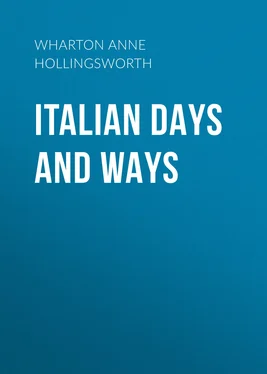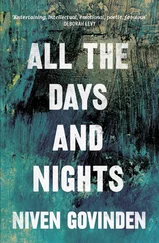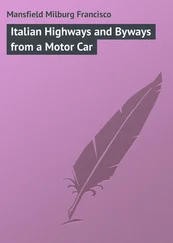Anne Wharton - Italian Days and Ways
Здесь есть возможность читать онлайн «Anne Wharton - Italian Days and Ways» — ознакомительный отрывок электронной книги совершенно бесплатно, а после прочтения отрывка купить полную версию. В некоторых случаях можно слушать аудио, скачать через торрент в формате fb2 и присутствует краткое содержание. Жанр: Путешествия и география, foreign_antique, foreign_prose, на английском языке. Описание произведения, (предисловие) а так же отзывы посетителей доступны на портале библиотеки ЛибКат.
- Название:Italian Days and Ways
- Автор:
- Жанр:
- Год:неизвестен
- ISBN:нет данных
- Рейтинг книги:4 / 5. Голосов: 1
-
Избранное:Добавить в избранное
- Отзывы:
-
Ваша оценка:
- 80
- 1
- 2
- 3
- 4
- 5
Italian Days and Ways: краткое содержание, описание и аннотация
Предлагаем к чтению аннотацию, описание, краткое содержание или предисловие (зависит от того, что написал сам автор книги «Italian Days and Ways»). Если вы не нашли необходимую информацию о книге — напишите в комментариях, мы постараемся отыскать её.
Italian Days and Ways — читать онлайн ознакомительный отрывок
Ниже представлен текст книги, разбитый по страницам. Система сохранения места последней прочитанной страницы, позволяет с удобством читать онлайн бесплатно книгу «Italian Days and Ways», без необходимости каждый раз заново искать на чём Вы остановились. Поставьте закладку, и сможете в любой момент перейти на страницу, на которой закончили чтение.
Интервал:
Закладка:
Now indeed, looking up at the terraced olive-groves, we feel that we are in Italy. For many miles the road lies beside these gardens, which are monuments to Italian thrift and industry, as every square inch of the scanty earth on the hillsides is held in place by stone walls, one above another, until some are almost mountain high, olive-trees growing to the very top. On the sunny plains between the hills are acres of carnations, violets, stock-gillies, and mignonette, which fill the air with their delicious fragrance. From these immense gardens the large cities are supplied with flowers, and also the manufactories of perfumes. Hundreds of the beautiful blossoms, they tell us, are sacrificed to make a single drop of essence.
We passed by Albenga and Alassio, over the suspension bridge at Porto Maurizio, and so on to Taggia, which is near San Remo, where we three were to part company for a few days. Off to the right we could see the picturesque ruins of Bussana Vecchia, destroyed by an earthquake as late as 1887, never rebuilt, and now standing silent and desolate on the hill-top above its namesake, the little modern town of Bussana Nuova.
Our view of Poggio and Bussana Vecchia was suddenly cut off by an inopportune tunnel, from which we emerged into the brilliant sunshine, to see before us the pretty villas, the waving palms, and the general air of cultivation and bien-être that belong to this favorite and highly favored town. When Zelphine and Angela caught this glimpse of San Remo from the train, and saw Genevra's children waiting for me at the station, I am quite sure they repented them of their decision.
I had not seen Roger and Phœbe since they were babies, but I knew them at once, and we are already fast friends. Genevra's welcome, as you may believe, was of the warmest. It is delightful to be in a home again, after tossing about in a state-room and knocking around in strange hotels, and in a home as charming as this!
February 25th.Everything is delightfully foreign in this ménage ; Genevra lives in an apartment, as most people do here; hers is on the second floor, with a huge salon on one side of the hall, a salle à manger on the other, and the usual complement of bedrooms, kitchens, and the like. This is quite different from anything we have in America, where the apartments are on a scale of princely magnificence, with prices to match, or of a simplicity so extreme that "flat" seems to designate appropriately both them and the condition of those who inhabit them. This apartment is really a house on one floor; the entrance and stone stairway are quite palatial, and yet it is à bon marché . The drawing-room is spacious, with windows to the floor, opening out on balconies on which we step out to see the bersaglieri drill in the evenings, as the children are on the qui vive from the moment the spirited music reaches their ears.
Genevra's large salon is heated by an open fire of olive-wood, which she says makes it warm enough except when the winters are unusually cold. The English ladies who come to tea in the afternoon throw aside their wraps, exclaiming, "Ah, Mrs. Fuller's drawing-room is always so very hot!"
Hot is not exactly the word that I should apply to dear Genevra's pretty drawing-room, although I know that Lucie and Marthe are piling on extra wood all the time in compliment to Mademoiselle, the shivering American.
Everything in this house moves with a delightful smoothness and ease, and the whole atmosphere of the place is indescribably restful. When I awake in the morning I touch a bell, which soon brings to my bedside the trim, neat-handed Lucie with rolls and coffee. This morning my breakfast-tray was glorified with great bunches of dark purple and light Neapolitan violets.
"What is the meaning of this reckless extravagance?" I call out to Genevra, whose room is next to mine.
"Extravagance, ma belle !" replies Genevra. "Flowers are one of the economies of San Remo. If I were to carpet your path with violets it would be a cheap pleasure for me at the rate of two soldi a bunch!" Wasn't that like Genevra?—like the old Genevra, yet with a certain grace learned from these charming Italians! Only half believing her, and yet comforted by her assurances, I enjoy the delicious fragrance of the violets while I luxuriously sip my coffee and read the opening pages of Ruffini's "Doctor Antonio."
Yesterday we drove to Bordighera, and Genevra and I tried to find the place near Ospedaletti where Sir John Davenne's coach came to grief by the roadside. It was disappointing to find no trace of Rosa's little inn, only great hotels, a casino, and all manner of extravagant and unromantic modern innovations. The sea and the picturesque coast are fortunately the same, and Genevra pointed out to me the great rock near which Battista rowed Lucy's boat while Antonio told Sir John how cleverly the valiant citizens of Bordighera had here outwitted the British in their brig-of-war. And on this road the Doctor walked home by moonlight, after an evening with Sir John and Lucy, singing "O bell' alma innamorata!" Poor, dear, brave Antonio—love, dear love, treated him shabbily enough! Your mother will remember reading this story to me on one of my early visits to Woodford. Although I was but a child then, my wrath rose hot against Lucy's treatment of Antonio. After her marriage with Lord Cleverton I refused to listen to another word about the faithless Lucy, until curiosity and a real fondness for the pretty blonde heroine sent me back to this saddest of stories, over which I wept as girls of an earlier time wept over "The Sorrows of Werther."
This digression is all apropos of Bordighera, which is most interesting aside from its associations with Lucy and her lover, with its enchanting Coast Promenade ending at the Spianata del Capo. From this promontory there is a noble view of Ventimiglia, Mentone, Monaco, Villafranca and its light-house; beyond is the long, low line of the French shore, and still beyond, the Maritime Alps, with flecks of snow upon their sides, while near us, at our feet, lies the bay of Ospedaletti, sparkling in the sun. Bordighera is literally framed in by palm-trees—palms to right, to left, everywhere. No wonder that this little town long had the exclusive honor of supplying the palms to St. Peter's in Rome for Palm Sunday; but thereby hangs a tale which I may not relate to-day, as Genevra bids me drop my pen and join her and her friends over a cup of tea.
February 26th.The days pass all too quickly in this charming place. My mornings are generally spent in walking—sometimes on the Promenade du Midi, which lies near the sea, a beautiful, palm-bordered terrace above the beach—or in wandering through the old quarter of San Remo, with Roger and Phœbe by my side. Here are narrow, precipitous streets like those of Genoa, in strong contrast with the gay walk by the sea, which has all the characteristics of a foreign watering-place. The vive la bagatelle existence of the Promenade du Midi is not without its charm once in a while, but in the winding streets of the old town is the typical life of San Remo.
We watch the vendors of fruit, vegetables, nuts, and herbs displaying their simple wares upon the sidewalk, or stroll down by the bank where the washing is done, picturesquely, if somewhat laboriously, in the open. The lavandaie are, most of them, vigorous young creatures, and as they beat the clothes against the stones or rinse them in the clear, running water, their merry chatter and laughter suggest social joys even beyond those of our voluble Bridgets at home.
Your mother's favorite saw about the back being fitted to the burden often recurs to me here. If these peasants are poor, their wants are few, they live in a divine climate, the whole of the out-of-doors is theirs, and, above all, they have dispositions and digestions that may well cause them to be envied of princes. Dr. A., Genevra's physician, tells me that the peasants here are usually healthy and the children as robust as they are handsome. This Italian gentleman is one of the interesting characters of San Remo. I always feel like calling him Doctor Antonio, for although Dr. A. has travelled extensively, and speaks English perfectly, he is quite Italian in appearance and manner, and so loyally devoted to his Italy that I am quite sure he would have sacrificed life and fortune to her cause had he lived in the stirring times that developed Ruffini's heroic Doctor Antonio.
Читать дальшеИнтервал:
Закладка:
Похожие книги на «Italian Days and Ways»
Представляем Вашему вниманию похожие книги на «Italian Days and Ways» списком для выбора. Мы отобрали схожую по названию и смыслу литературу в надежде предоставить читателям больше вариантов отыскать новые, интересные, ещё непрочитанные произведения.
Обсуждение, отзывы о книге «Italian Days and Ways» и просто собственные мнения читателей. Оставьте ваши комментарии, напишите, что Вы думаете о произведении, его смысле или главных героях. Укажите что конкретно понравилось, а что нет, и почему Вы так считаете.












